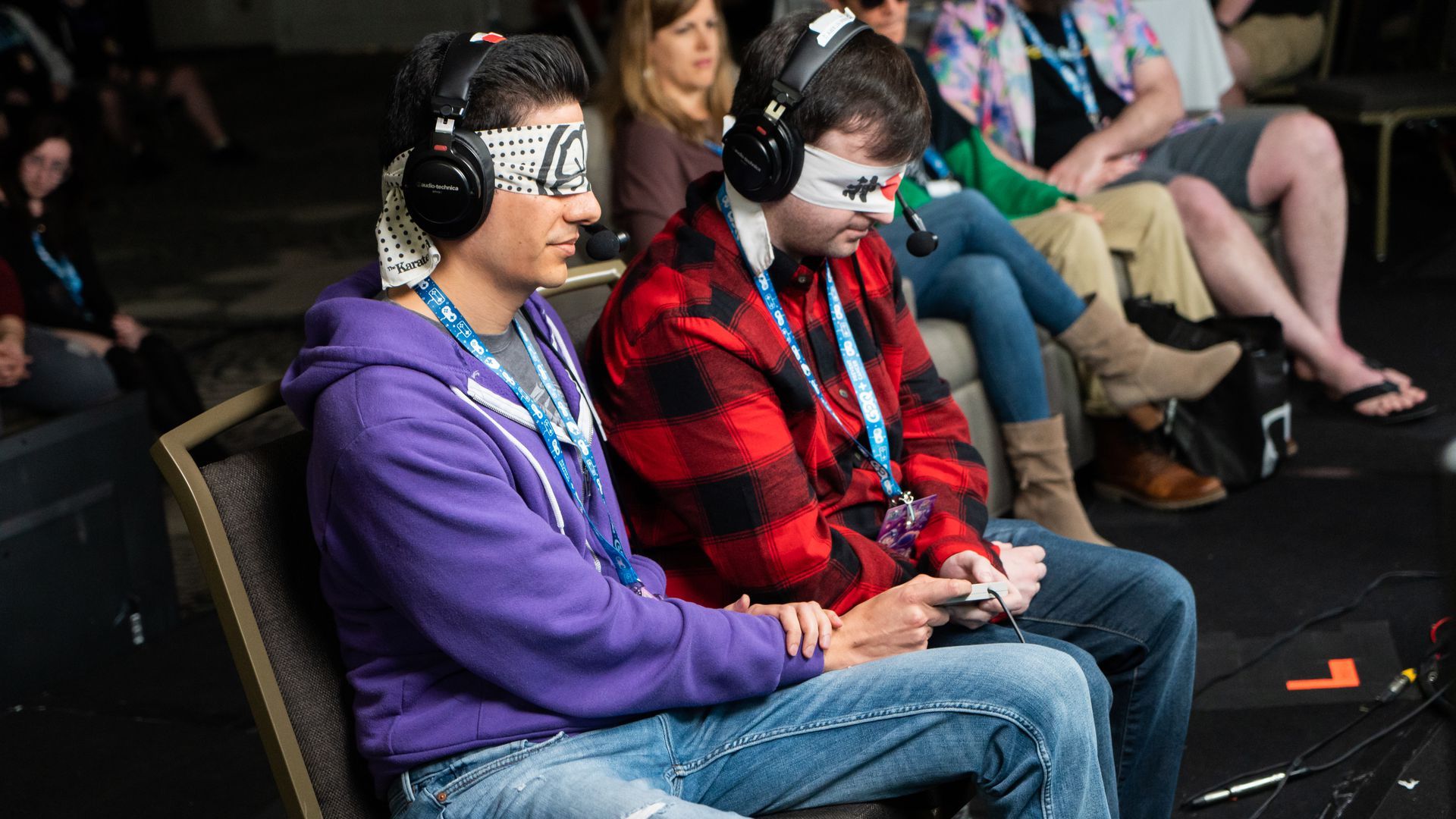Gaming's best speedrunning festival returns next week
Add Axios as your preferred source to
see more of our stories on Google.

Speedrunners about to collectively clear Mike Tyson's Punch-Out, while blindfolded. Photo: Games Done Quick
The 13th annual running of Awesome Games Done Quick will start this Sunday, kicking off a week of the best spectacles in gaming.
Why it matters: The increasingly successful livestreamed GDQ events, which include the flagship AGDQ each January, showcase the ingenuity and generosity of the gaming community.
- Throughout the week, speedrunners will conduct live playthroughs of some 150 games, with the singular goal of reaching the end of each as fast as possible. [Full event schedule]
- As they run, the audience is encouraged to donate, this time to the Prevent Cancer Foundation.
- Donations passed $3 million for a GDQ event in the summer of 2019 and again in early 2020, before falling during the pandemic. Organizers hope to hit that mark again once life gets easier.
The details: Speedruns at next week’s event will include retro games and even recent 2021 releases like Psychonauts 2.
- One player will take on the notoriously difficult 2019 samurai game Sekiro while blindfolded. (Blindfold runs have been a mainstay of GDQ for nearly a decade, arguably reaching their apex in 2020 when two blindfolded men beat Nintendo classic Mike Tyson’s Punch-Out while sharing one controller).
- Promising runs for next week also include a multiplayer race in GeoGuessr, a game that places users in a random spot in Google Maps’ street view and then challenges them to figure out where they are (in an extraordinary 2020 demonstration, a speedrunner could identify the correct country in seconds).
- The event's so-called Awful Block will feature a run of a notoriously bad Sonic: The Hedgehog game made for Game.com.
Between the lines: The GDQ events are grassroots, especially compared to the spectacles put on by the corporate giants of the gaming and esports industries.
- They began in 2010 in the basement of speedrunning aficionado Mike Uyama and are operated largely by volunteers working in concert with GDQs four or so full-time employees. Runners aren’t paid.
- Donations during the event go to charities, with GDQ taking in revenue through a fee with their charity partner and advertising.
- The events have drawn 3,000 live spectators in recent years but switched to virtual-only in mid-2020 due to COVID.
- The silver lining of the virtual format, GDQ director of operations Matt Merkle tells Axios, is that it opens the event to players of a broader spectrum who might not have been able to afford to come to the event to do their runs in person.
What’s next: GDQ will run another event in February focusing on female speedrunners. It’s part of an effort, Merkle says, to address how male-dominated the field has been.
- He also hopes to run more online events and to find ways to showcase more Black runners and other people from less represented groups. The goal, he says, is to “push the community towards more inclusivity.”
- As for what people will play at future GDQs, video games are still the focus, but: “I'm sure somebody’s going to try and submit a board game at some point,” Merkle said.
